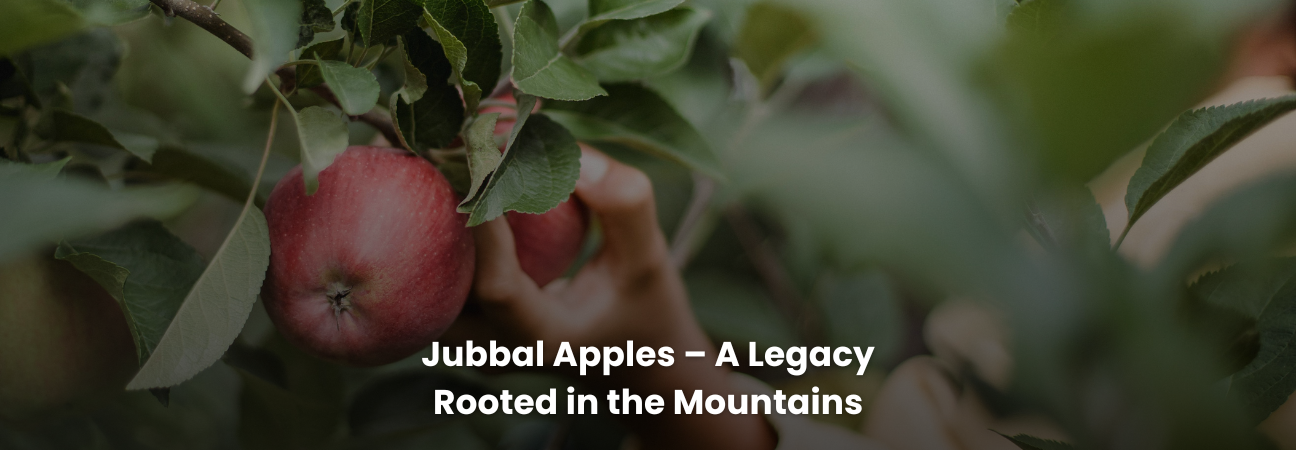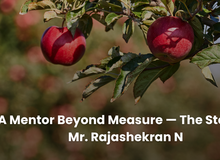Some places grow fruit. Others grow pride. Jubbal does both.
High up in the hills of Himachal Pradesh, surrounded by pine forests and snow-dusted peaks, lies a quiet apple-growing town that has been feeding generations with its crisp, deep red apples — Jubbal. Here, apple farming isn’t just a seasonal activity. It’s a way of life, a tradition passed down like an heirloom, and a livelihood that shapes entire families.
This isn’t a blog about fruit. It’s about the land, the people, and the hard-earned sweetness that ends up in your apple box.
Where Is Jubbal?
Located roughly 90 km from Shimla, Jubbal sits at an altitude of over 2,000 meters. The slopes are steep, the winters are cold, and the summers are mild. This natural climate is perfect for growing apples — especially the popular Royal Delicious, Rich-a-Red, and Golden varieties.
But it’s not just about the weather. It’s the people, the soil, and the patience. The orchards here aren’t run by machines. They’re tended by hands — hands that know the rhythm of the seasons, the weight of a ripe apple, and the signs of a good harvest.
What Makes Jubbal Apples Stand Out?
Jubbal apples are known across India for their color, crunch, and unmistakable sweetness. What makes them different?
Slow grown, sun-ripened
Hand-picked at the right moment
No wax, no polish, no shortcuts
Rich taste with a clean finish
Because these apples grow in high-altitude conditions with cool nights and bright sunny days, they develop better skin color, denser flesh, and longer shelf life — all naturally.
Meet the Faces Behind the Fruit
Apple farming in Jubbal isn't corporate. It’s personal.
Take Ishwar Jhouta, for example — a respected orchardist from Dhar village. For decades, he’s walked the same sloped paths in his orchard, checking trees, pruning by hand, and picking apples with care. His daughter, Ruhani Jhouta, recently returned from the city for apple season. She saw what her father had built and decided to carry it forward — not by replacing tradition, but by adding to it.
Ruhani now helps him manage the orchard, introducing digital logs, natural pest management, and direct-to-customer deliveries. She says,
"I watched my father work through rain, hail, and sunshine. I realized this wasn’t just farming — this was our legacy. And I wanted to be part of it."
Their story isn’t rare in Jubbal. Across the region, sons and daughters are choosing to stay back, modernizing the orchard while preserving the honesty of the harvest.
Farming Here Isn’t Easy — But It’s Worth It
The hills of Jubbal aren’t gentle. Orchards stretch across steep slopes where tractors can’t go. Everything is done by hand — carrying baskets, sorting apples, climbing trees. A single harvest can take weeks of dawn-to-dusk labor.
During rainy seasons, roads are blocked. Labor becomes scarce. And sometimes, just when the apples are ready, hail strikes. But the farmers don’t stop. They cover their trees with sheets, form chains to carry boxes, and keep going.
The fruit they grow isn’t just food. It’s resilience, packed in a box.
From Orchard to Your Doorstep
Until recently, most apples from Jubbal were sent to mandis — Delhi, Chandigarh, Mumbai — where they were sorted, stored, and sold days or even weeks after harvest. But by then, much of the crispness and nutrition had faded.
With platforms like Orchards Box, that’s changing.
Now, Apple growers like Ishwar and Ruhani can send their apples directly to homes across India. When someone places an order, apples are picked fresh from the orchard, packed in protective boxes, and shipped — no cold storage, no middlemen.
What you receive is not just a fruit. It’s a message from the mountains.
Why Fresh Matters
Store apples often look perfect. They shine. They stack neatly. But that shine usually comes from wax. And their age? Many have been in cold storage for weeks.
Jubbal apples, on the other hand, are:
Ripe on the tree, not in transit
Full of flavor and fiber
Free from artificial coatings
Handled less, so they stay safe and clean
They taste like how apples should taste — fresh, crunchy, and naturally sweet.
What You Support When You Choose Jubbal Apples
When you buy from big retailers, most of your money goes to transporters, warehouses, and sales chains. The farmer often gets the smallest cut.
But when you buy directly from a Jubbal orchard:
You help a family send their child to school
You keep traditional farming alive
You reduce waste, cold storage, and chemicals
You eat better, cleaner fruit
And above all, you build a connection — between the hills and your home.
Want to Try Jubbal Apples?
Here’s how to bring the mountains to your doorstep:
1. Visit OrchardsBox.com
2. Choose your apple variety — Red, Royal, Golden, or Mixed
3. Pick your harvest week
4. Place the order — and get freshly picked apples delivered in just a few days
Each apple you receive comes straight from an orchard like the one Iswar and Ruhani care for.
Final Thoughts
There are apples. And then there are Jubbal apples.
One is just a fruit. The other is a story of tradition, hard work, and mountain pride. When you choose the latter, you’re not just eating better — you’re part of something bigger.
So the next time you crave an apple that’s real, honest, and full of heart — choose the one grown by hands that know what they’re doing.
Choose Jubbal.
🚚 Order Now – Fresh Jubbal Apples Delivered to Your Door
📦 No cold storage. No wax. No middlemen. Just apples — the way they were meant to be.





